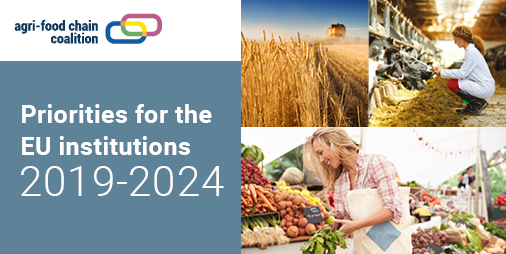By 2050, the global population is expected to reach 9.7 billion people. Arable lands and pastures continue to decrease due to urban expansion and new infrastructure. More frequent extreme weather situations will become a major challenge for livestock and arable farming. Sufficient availability of quality food in the regions where a significant population growth is expected can only be achieved through the optimal use of resources and continuous investment in developing sustainable innovative technologies.

In Europe, the need for a common policy framework for agriculture and innovation promoting the uptake of smart farming technologies and strengthening the links across the food supply chain to reduce food waste will be key.
The Agri-food sector is the engine of European food systems and it contributes significantly to Europe’s growth and jobs. Nowadays, the agri-food chain industries are not only expected to provide food for all but also to drive innovation and to help Europe achieve the Sustainable Development Goals. Furthermore, agri-food systems will play a key part in delivering the EU’s ambition of a carbon-neutral economy by 2050 through reduced emissions and, especially, through mitigation efforts and increased biomass production.
The Agri-Food Chain Coalition just released a new brochure that highlights the challenges facing the agri-food chain, and calls on the EU Institutions and Member States to develop and adopt common policies to unleash the great potential of the European agri-food chain. The main priorities are as follows:
- Combating climate change
- Achieving sustainable development goals
- Providing access to innovation and smart farming
More information:
- Agri Food Chain Coalition website: https://agrifoodchaincoalition.eu
- On Twitter: #AgriFoodEU